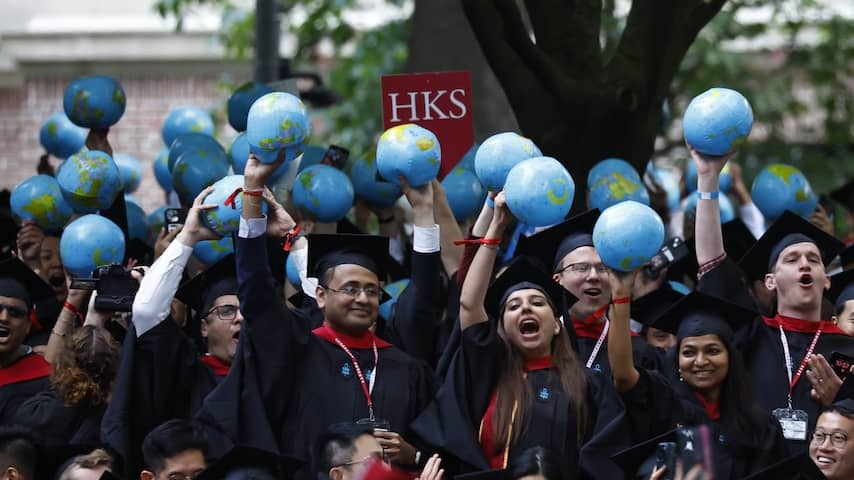
Harvard University can breathe a sigh of relief as a judge has extended the block on the ban on foreign students. But it is unclear whether the American top university will also win against President Donald Trump in the long term. This is what we know now.
On the day that nine thousand students received their degrees at Harvard, the top university achieved a preliminary victory over the Trump administration. A federal judge extended the order making it impossible to simply send foreign students away from the university. This allows seven thousand international students to breathe a sigh of relief – at least for the time being.
At the same time, Trump’s own Department of Homeland Security took a step back. Harvard is given thirty days by the ministry to demonstrate that the university meets some requirements. Among other things, the government wants information about students who have “misbehaved” during demonstrations on campus.
Exactly a week ago, the Trump administration forbade the university from enrolling any more international students. That caused a shock at Harvard. Foreigners who study there would have to change universities. 116 Dutch students would also be affected by this.
That is why the university immediately went to court. They stated that the measures that Trump demands are indeed not feasible.
Struggle between Harvard and Trump goes back months
It was not the first time that Harvard, in Cambridge near Boston, clashed with Trump. That fight goes back several months. Immediately after taking office, the president signed a decree requiring universities to tackle anti-Semitism. Harvard was under scrutiny. There, just like at some other universities, pro-Palestinian demonstrations took place last year.
But even before that, Harvard was already the target of conservative politicians. They associate the university with progressive ideologies. According to Trump, university education is “drenched in Marxists and lunatics”.
After taking office, Trump wanted to screen the top universities. He would also interfere with the admission of students and the appointment of staff. If they did not cooperate, Harvard and other universities would lose their subsidies.
Under pressure from students and staff, Harvard did not comply with Trump’s demands. In a message to students and staff, the rector wrote that “no government should be allowed to prescribe what private universities may teach, whom they may admit and employ, and what fields of study and research they may pursue.”
Resistance was not appreciated by Harvard
The resistance was not appreciated by Harvard. In April, Trump announced that he would freeze $2.2 billion (more than €1.9 billion) in government money for Harvard. Trump then tried to thwart the university in all sorts of ways and the battle escalated.
Trump threatened to revoke the university’s tax-free status. Extra federal subsidies were stopped. He also ordered the government to cancel all financial contracts with Harvard. This would cost the university 100 million dollars. According to the president, that money can be better spent on business schools. Trump himself studied at such an institution.
Despite the temporary victory for foreign students, the battle between Harvard and Trump is certainly not over. Some students are playing it safe and leaving themselves. On Thursday, Harvard reported being flooded with requests from foreign students who want to transfer to another university.
Others remain combative. “It is not easy to unite a place with so many opinions as Harvard,” a student told The Daily, the podcast of The New York Times. “Yet Trump has succeeded in that.”